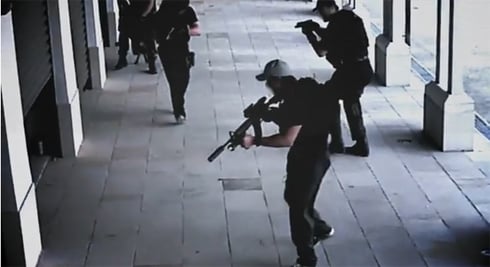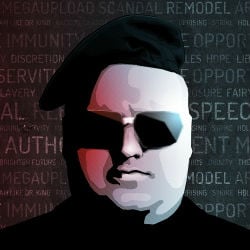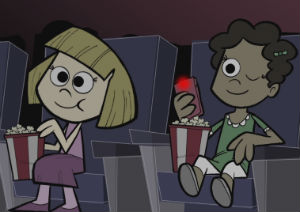[Most Recent Entries] [Calendar View]
Tuesday, December 23rd, 2014
| Time | Event |
| 9:03a | Raid on Kim Dotcom’s Mansion Was Legal, Supreme Court Rules
Acting on allegations from the United States government and its Hollywood partners, officers of STG, New Zealand’s elite counter-terrorist force, raided Kim Dotcom’s mansion. The German-born businessman was detained along with his wife Mona and their children. Mid 2012, a High Court judge found that the warrants used in the raid were overbroad and therefore illegal, but a February 2014 Court of Appeal reached a different conclusion. While acknowledging that the warrants contained flaws, a panel of three judges at the Court of Appeal found that overall the warrants were legal. In another disappointing ruling for the Megaupload founder, this morning the Supreme Court found that the 2012 raids on Dotcom’s home were carried out legally.  Four Justices – John McGrath, William Young, Susan Glazebrook and Terence Arnold – dismissed Dotcom’s appeal while agreeing that the 2012 warrants were not unreasonably vague and general. Chief Justice Dame Sian Elias dissented, but her determination that there had been a miscarriage of justice was overruled. One judge aside, the Court acknowledged that while the original search warrants were indeed deficient when detailing the alleged offenses, those shortcomings did not result in damage for Dotcom and his associates. “The majority of the Court has decided that, although the search warrants were deficient in their description of the offenses to which they related, these defects did not result in any miscarriage of justice to the appellants,” the Court wrote in its summary. “While the search warrants did not specify that the offenses were against United States law, or that the offenses were punishable by two or more years’ imprisonment, this did not cause any significant prejudice to the appellants.” When taking all circumstances into account, including the explanations given to Dotcom by police carrying out the raid, the Court found that Dotcom (and fellow claimants Finn Batato, Mathias Ortmann and Bram Van Der Kolk) were given enough detail about the alleged offenses to which the search warrants related. Dotcom, who along with his co-appellants will have to pay court costs of $35,000, aired his disappointment on Twitter. “New Zealand Chief Justice Dame Elias got it right in both Supreme Court decisions in my case. She must be as frustrated as I am,” Dotcom wrote. Source: TorrentFreak, for the latest info on copyright, file-sharing and anonymous VPN services. |
| 3:55p | UK Cinema Calls Police on Kids With iPhones Over Piracy Concerns
It started well over a decade ago when visitors began sneaking handheld camcorders into theaters. These big clunkers were easy to spot, but as time passed the recording devices became smaller and easier to hide. While recording a movie for strictly personal use is not illegal in UK cinemas (despite industry efforts to have the law changed), theaters continue to outlaw the use of recording devices. Most recently, Google Glass was banned, and phones and tablets need to be switched off as well. In a code of conduct the movie industry and cinemas have agreed that employees will take immediate action when they spot someone with a recording device, but some cinema staff take these obligations way too far. At a Cineworld cinema in Brighton Marina, UK, employees dialed the national 999 emergency number after they spotted a group of 12-year-old girls with iPhones and iPads at a showing of The Hunger Games. The girls, accused of recording parts of the movie, were hauled outside where two police cars rushed towards the scene with flashing lights. Although recording movies is not a crime in the UK (as long as there’s no intent to distribute), the officers still carefully inspected the devices for ‘bootleg’ material. After their search turned up nothing the girls were allowed back in. However, the teens decided to wait outside, reportedly in tears, until their parents came to pick them up. Louise Lawrence, the mother of one of the girls, is outraged by the treatment. Not just the false piracy accusation, but also the fact that they were left out in the cold afterwards. “Our girls were falsely accused, had the police called on them and then just left in tears. It’s outrageous. If they have done this to our children they will do it again,” she says. A Cineworld spokesperson stresses that they apologized to the parents for the mistake, adding that it’s common procedure to take these actions. “While we regret that the customers felt distressed, we are confident that the correct procedures were followed. If our staff see such behavior we expect them to notify the cinema management immediately and to call the police. However, we have taken on board the concerns expressed by the parents and we are reviewing how the policy is applied to younger customers,” she adds. While movie theater staff could indeed call the police if they suspect that a commercial pirate is in their midst, a group of 12-year-old girls with iPhones hardly falls into the category. And calling the national emergency number certainly seems to be taking things too far. Source: TorrentFreak, for the latest info on copyright, file-sharing and anonymous VPN services. |
| << Previous Day |
2014/12/23 [Calendar] |
Next Day >> |
 Almost three years ago, New Zealand police carried out a spectacular and aggressive armed raid against individuals accused only of copyright infringement.
Almost three years ago, New Zealand police carried out a spectacular and aggressive armed raid against individuals accused only of copyright infringement.